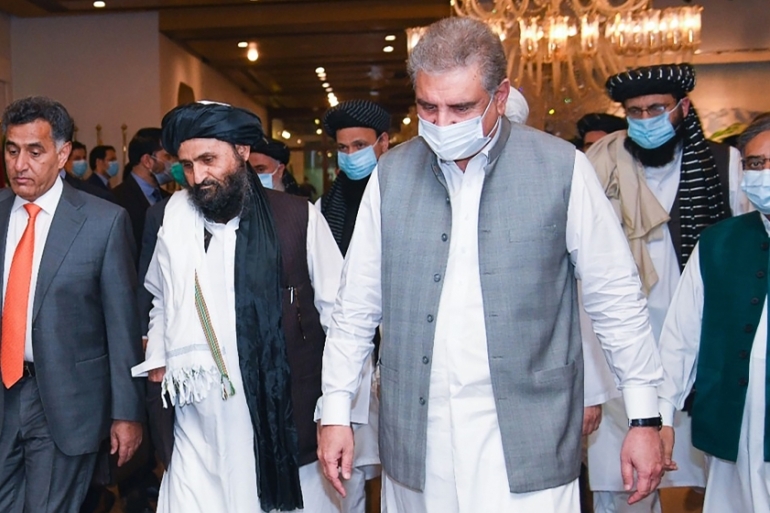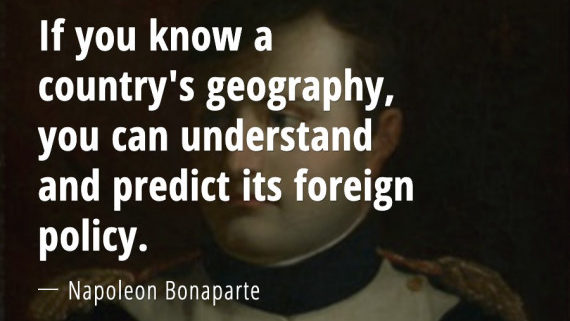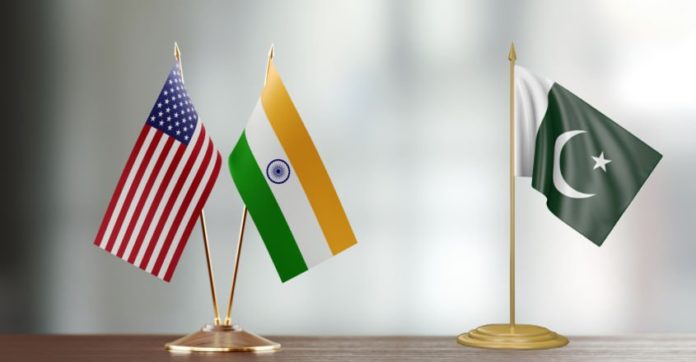Mark Twain, the greatest American humorist, said, “God created war so that Americans would learn geography.” Though he lived and died before World War-I, he was prophetic in essence. The post-exit scenario of the United States from Afghanistan is a perfect case study as to how a theatre of civilization, and subsequently a superpower, doomed itself in war-mongering. Yet, the Americans are to learn geography after having stumbled in Vietnam, the Middle East and Southwest Asia. From Neo-Colonialism to New World Order, and the impugned War on Terrorism, it is a telling tale of half-kept promises, hope and deceit.
Now as President Joseph Biden has formally decided to take a backseat in jingoism, and reignite an inward-looking foreign policy, there aren’t many takers in the American establishment. He himself is not sure of it, as he voiced support for Taiwan and pledged to go to war if the island-state is attacked by China. What a dichotomy! Similarly, various poles of power such as the Congress, the State Department, Pentagon and the political hierarchy are in a debate as to what is America’s future, and how responsive should Washington be to its allies and adversaries. This is where the new America is in the making.
But a glance at Deputy Secretary State Department, Wendy Sharman’s diatribe in Islamabad made it clear that the US is confused or to be more precise ‘clueless’ as to what should be its priorities in Southwest Asia, and especially with reference to its ties with Pakistan.
Wendy was widely quoted as saying, “We don’t see ourselves building a broad relationship with Pakistan.” This is a myopic and untenable approach. It squarely underrates the significant contribution of an “allied ally”, and the only country that stood with the United States in realizing its core policy objectives in the region.
Pakistan was instrumental in connecting Washington with Beijing, which resulted in US’s One-China policy; defeating the Soviet Union through the Mujahedeen proxy, fighting the disgusting war on terrorism in the wake of 9/11 attacks, and last but not least, enabling the superpower have a safe exit from a war-weary landlocked state swinging back to Taliban.
But it seems, either the US believes in looking the other way, or is unconcerned with the ground realities in the region. It is a foregone conclusion that Islamabad will continue to remain the most relevant player for Washington in this region; and ignoring it will be at the cost of debacle.
Pakistan is the only country in the region that enjoys amicable and multidisciplinary relations with Saudi Arabia, the UAE, Central Asian republics, Iran and Turkey. It has built strategic bridges with Moscow too, and proudly sits in the Beijing camp. Moreover, its exclusivity with the new regime in Afghanistan is no secret, and Islamabad has been at the vanguard of advocating congeniality for the sake of peace and security by espousing a policy of ‘engaging the Taliban.’ Washington cannot ignore Islamabad’s indispensability.

US-Pak Reset
It’s high time the security paradigm is put at the backburner and both Islamabad and Washington rewrite a new chapter in their checkered relations. Until and unless it is people-centric, mistrust will continue to reign supreme.
For more than four decades, the bilateral policy was Afghan centric, and to an extent that policy-stakeholders in the US even accepted Pakistan going nuclear to keep it obliged. Secondly, what ails their relationship is the uni-dimensional aspect of interaction which is militaristic in essence.
Now as two decades of jingoism has cost Americans its leadership and $4 trillion in Afghanistan, the policy needs a somersault review. Pakistan can still and will continue to be an asset in dealing with Afghanistan as well as China, as its territory is the transit point of the Belt and Road Initiative.
The ongoing ‘air corridor’ talks by the US to use Pakistan’s airspace for monitoring Afghanistan ‘over the horizon’ to galvanize intelligence operations is a case in point. This is where trust should usher in, and Washington should be obliged that Islamabad is still acting as a gateway for its expanded role in the region. Likewise, Pakistan has the edge and the potential to defuse tensions in the hegemonic rivalry between the US and China; and at the same time keep bringing in the US as a strategic player in the region.
As a new reset, the US and Pakistan should focus on intelligence sharing, education profile, wealth investment and transfer of technology. The benchmark should be on the basis of sovereign equality and reciprocity. The nexus of ‘either you are with us or them,’ must go. Pakistan must ensure that it uses all tools of diplomacy and soft power to reach out to the vibrant society i.e. the US, through a process of strategic sustained engagement with all stakeholders. This is the way to go forward, and not one on a dependence paradigm.
Recasting with India
Pakistan’s biggest and most mysterious concern is how to deal with India, and engage it in a constructive manner. The Hindutva bogey in state-centric relations and the extra-constitutional measures of August 5, 2019 abrogating the special status of Kashmir, has brought their relations to a naught. The challenge is how to get back on track?
This puzzle is further compounded with the new axis of conformity that India has elbowed with the United States. It is purely anti-Pakistan in geometric essence and anti-China strategically. This is where mistrust and bad blood has crept in, especially in an era when Pakistan and China have pronounced a policy of geo-economics by putting aside genuine geopolitical concerns.
The need of the hour is not to oppose the $1100 billion world’s most gigantic and unprecedented investments under the BRI and CPEC drive, but to become a part and parcel of it. New Delhi and Washington need to take off the jaundiced lens and see the evolving new regional order on economics.
In fact, strategic farsightedness demands of India to turn the hostility over Afghanistan into engagement by mending fences with Pakistan. It could turn out to be an asset in geo-economics by providing it with access to the landlocked state, and at the same time magnify trade and commerce with Pakistan to the tune of $100 billion per annum. It will inevitably act as an impetus to lower the guard in occupied Kashmir, and kick-start meaningful talks.
In the wake of Taliban rule in Afghanistan, and the ruptured ties with it, India should see Pakistan as a strategic ally rather than an adversary. Delhi has invested more than $3 billion in Afghanistan, and now sits embarrassed and desolated. It rode the wrong horse and burnt fingers with the Taliban. This is the time to discover converging interests that could lead to more cohesion and cooperation in Afghanistan, resulting in regional peace and security, and the road goes through normalizing ties with Pakistan.
Pakistan’s military leadership, in an exceptional first, has expressed its desire for comprehensive unconditional talks with India. Army Chief Gen. Qamar Javed Bajwa told the Islamabad Security Dialogue in March 2021 that, “Kashmir can wait, as India and Pakistan move on to address all other irritants in their bilateral ties.”
Time for Delhi to respond with a statesmanship approach, and that can only happen if India rescinds its August 5 steps, and restores the erstwhile status of the Valley. That is the minimum initiative needed to get talking. One hopes the egalitarian civil society of India and its wise political breed will rise to the occasion.
There is no point in insulting the intelligentsia of 2.5 billion people of the region by playing the card of animosity over Kashmir. Both should realize that they are fatigued by terrorism and proxy wars, and must aspire for congeniality in their ties.

Delhi has already missed a great opportunity by refusing to deal with Pakistan under Prime Minister Imran Khan. The skipper-celebrity enjoys a great constituency in India’s civil society and that could have worked as a goodwill asset in rebuilding new bridges in culture, sports and economics. But India under Hindutva obsession has missed the bus. As they say, it’s late but never too late. Get hold of the foothold, and barge into the bus. India should give up the nefarious policy to destabilize, demonize and damage Pakistan. Better build bridges of confidence and cooperation with it. Napoleon Bonaparte, the French military general, was on spot when he said, “to know a nation’s geography is to know its foreign policy.” Time for US and India to get real with Pakistan and rewrite a new trajectory in optimism.





